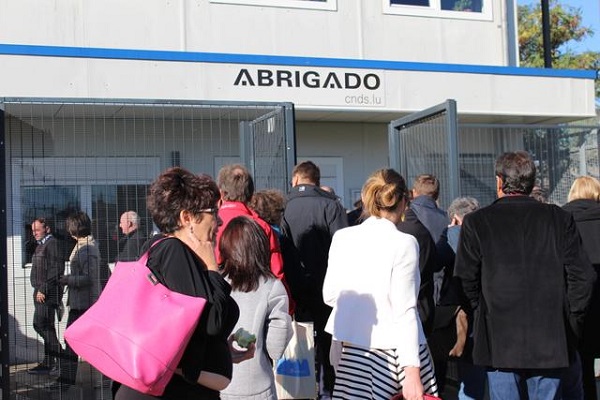
On 28 September 2015, the 28 national 'Drugs' coordinaters of the EU Member States gathered in Luxembourg to discuss an action plan for drug prevention.
The forum, organised under the Luxembourg Presidency of the Council of the European Union, was opened by Luxembourg Minister of Health, Lydia Mutsch, and chaired by the national 'Drugs' coordinator of Luxembourg, Dr. Alain Origer.
Reflected in the theme of the conference, 'Prevention of Drug Use: A Global Concept Around Common Objectives', talks focused on efforts to address drug use and its ever-challenging facets. Member States with specific national plans of action regarding drugs were able to present their efforts, whilst those present attempted to also address common solutions.
Lydia Mutsch stated that the drug policy of the EU, which is formulated on science and advocates measures to reduce demand and supply, must be 'collaborative', commenting: "I do believe that all our responses or actions which we plan to set up be developed to their full potential if they are part of an overall approach where the entirety of our answers is more than the sum of well thought-out, but isolated, measures".
Regarding more delicate projects, such as medically supervised drug consumption rooms and test projects of psychoactive substances in recreational settings, the Health Minister stated that these may only be possible and efficient in the presence of an appropriate regulatory framework.
"It is important to know that drug use and its consequences in terms of health and public safety do not comply for the most part with our action strategies," commented Alain Origer, national 'Drugs' coordinator in Luxembourg. "It is therefore important that our actions are constantly challenged, adjusted and supplemented according to new substances appearing on the psychoactive drugs market and to consumer behaviour in a society which is similarly changing and dynamic".
Within the context of the meeting, the 'Drugs' coordinators of the 28 Member States visited the Centre Abrigado in Luxembourg City - a combined day and night centre with a consumption room for drug users - with a view to considering the implementation of a similar structure in other Member States.
"When we try to reduce drug consumption among the general population or the negative consequences of the abuse of psychoactive substances in target groups, we are continually pursuing a single, same goal, namely: prevent damage related to drug use and its consequences. The only variable in this 'preventative equation' is the moment when we can or should intervene," explained the 'Drugs' Coordinator.
In this sense, the current strategy and EU Action Plan on Drugs sets out, on one hand, a reduction in drug demand through a series of measures of equal importance and with complementary effects; and on the other, seeks to improve the availability and effectiveness of prevention measures.
"It is probably unrealistic to think we can prevent some of our young and older people from experimenting with psychoactive products, by using and abusing them," continued Alain Origer. "What we can do is act, however, as far as possible, at all levels and moments of this dynamic relationship which links human beings with the products that alter their state of consciousness, their instrumentalisation of individual happiness and the addictive behviour which follows".
Under the auspices of the Presidency, Luxembourg also chairs the 'Horizontal Drugs Group' of the Council of the European Union.
Among the priorities of the Presidency in the context of drugs is an EU28 agreement on minimum standards for the treatment of drug addicts, including all relevant treatment options within diverse environments such as prison. This agreement represents a real step forward, when the significant deviations in lines of thinking of the various Member States are considered.
A second issue that the Presidency has chosen to tackle is the abuse of psychoactive prescription drugs, a phenomenon which has reached startling proportions and require increased public awareness thereof.
An additional issue, complex in nature, is the establishment of a more efficient European mechanism for detecting and regulatins synthetic substances to counteract the wave of new drugs flooding the market. In this respect, the Presidency reported that it is finalising a draft directive which comprises a preventive and regulatory aspect, with special emphasis place on the matter of public health.
Lastly, the Luxembourg Presidency is currently preparing for the extraordinary session of the United Nations General Assembly on global drug issues, to be held in April 2016. The Presidency will need to clearly articulate the positions and agreements of the EU to retain hope of tackling this considerable challenge.
Photos by Ministry of Health (Top: Abrigado Centre. Bottom L-R: Dr. Alain Origer, National 'Drugs' Coordinator of Luxembourg; Lydia Mutsch, Luxembourg Minister of Health; Camille Weis, President of Horizontal Drugs Group of the EU Council)








